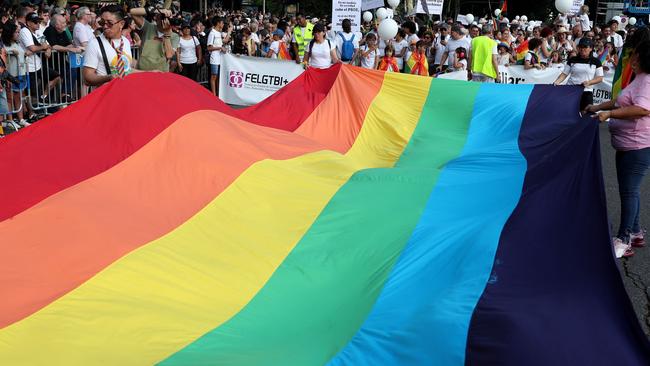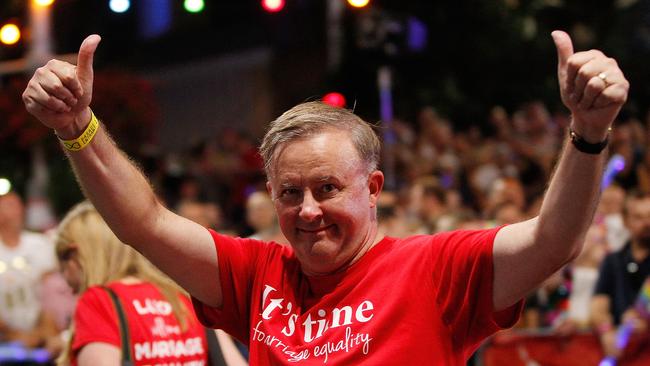
The whole episode demonstrates a misunderstanding of the role of the census and the options for other means of collecting statistical information.
It also underscores a lack of appreciation of how sampling is often just as good as the comprehensive coverage of a census. All undergraduates of economics learn that if a sample is carefully chosen for a survey, the estimates of the underlying population parameters are almost as reliable as those obtained from a census. (Perhaps our Prime Minister skipped those lectures in economic statistics.)
Moreover, the results of surveys are much timelier than any information that can be derived from a census.
It’s worth going through some of the background to our census to understand how this fiasco played out. The census is the dominant activity of the Australian Bureau of Statistics; it is estimated to cost around $600m to conduct each time. It is a continuous focus of the ABS, from the planning to the execution to the evaluation stages.

Our census has a relatively large number of questions already. In other countries – the US, for instance – there are only a handful of questions asked; it is essentially a headcount. It is also only conducted every 10 years.
Ways of reducing the cost impact of censuses have been in active consideration for many years all over the world. One option is to follow the US example and conduct them only every 10 years. Having fewer questions is also a common consideration. Some countries have considered dropping their censuses altogether.
(Australia is unlikely ever to completely drop the census because of its role in redrawing electoral boundaries as well as providing the basis for some funding for local, state and territory governments. It is really the only source of detailed, small-area data, albeit on a very lagged basis.)
There was a time when the number of questions in our census grew likely Topsy. There is always a constituency for every topic – about housing and income, for instance.
There is also a handful of demographers and consultants who essentially make their living from accessing census data at a detailed level.
There are some very poor rationales for keeping many of the questions. We have better data through administrative sources, through the banks as well as other officially collected statistics. No one really believes the answers to the income questions, and the broad income brackets specified make this information not very useful.
The unfortunate reality is that there are always strong opposing forces should there be any suggestion that certain questions are dropped.
It is one reason why the Australian census was relatively unchanged for many years; it is generally a one-way street, enlarging its scope. Doing so can also introduce its own set of problems such as respondent fatigue. Last time, there were additional questions about long-term health conditions and the Australian Defence Force.
During the last election campaign, the Labor Party pledged to include questions about sexuality and gender in the next census. But there was insufficient thought given to the practicalities of doing so. No doubt it felt good; there was some symbolic benefit. The LGBTI+ groups welcomed the promise.
Even under the best-case scenario, census-derived information on sexuality and gender would not be available until 2027, all going well, after the next census is conducted in 2026. This is a long time to wait given there are alternatives that could be undertaken much more quickly.
For example, the ABS conducts large household surveys every month to estimate the rate of unemployment and other labour market indicators. There are supplementary questions attached to most of these surveys. One option would have been to include questions about sexuality and gender in these surveys. The involvement of the Australian Institute of Health and Welfare could have strengthened the integrity of this approach.
The other benefit of using supplementary surveys is that they can be repeated on a regular basis and, in this way, some picture of any changing patterns in people’s sexuality and gender identification can be detected quickly. These surveys also involve relatively small numbers of respondents compared with the census; any backlash is likely to be relatively muted.
Had the federal government proceeded down this alternative path, the issue would have been resolved by now. To be sure, there will always be some contention, even disagreement, about the official statistical agency asking people questions about their sexual preferences and gender identity. For example, some people may have strong objections to being asked about their sexual preferences, regarding this issue as an entirely private matter.
In all likelihood, any questions about sexuality and gender would have to be made optional, just as the question about religion in the census is optional. But note here that almost all census respondents do answer the question about religion. Responses for members of households aged 15 and under would also not be required.
The normal testing of questions could take place involving consultation with representatives of the LGBTI+ community as well as others. There are examples of questions used in other countries, including Canada, New Zealand and the UK.
The position the federal government has landed on is completely unsatisfactory. The ABS is effectively being instructed to test questions on sexuality but not gender, a split that will displease some activist groups.
It has raised the profile of the issue, potentially leading to conservative groups becoming involved. Rather than diluting the potential divisiveness of the issue, the political heat has been turned up.
There was always a simpler and faster option that would have yielded information about the LGBQI+ community much more quickly and with a reasonable degree of accuracy. This is not to downplay the complexities of achieving consensus on the precise questions, particularly in respect of gender identity. But testing and piloting on a small scale should have been able to iron out some of these problems.
The Albanese government is now left to sort out this mess of its own making.







The Albanese government has made a complete hash of the proposed inclusion of questions about sexuality and gender in the five-yearly census. They were in, then they were out, and now questions about sexuality may be in. It didn’t have to be this way.